PUBLISHED DECEMBER 2017
by
Deb Vanasse, Reporter,
IBPA Independent magazine --
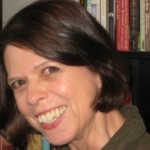
Deb Vanasse
Publishers must understand the nuances of editing, search for the right talent, and foster good relationships to reap the benefits of a perfect editorial fit.
Within the past decade, market changes have created a healthy supply of freelance editorial talent. But in the wide-open field of freelance editing, quantity is no guarantee of quality.
"There are more editors looking for freelance work since the Big Five have let a vast number go from full-time or part-time work," says Geoff Brown, acquisitions editor at Cohesion Press. "Combine that with the many self-published writers who think they can now work as editors because they put out a memoir or urban fantasy through Kindle Direct Publishing, and you have a lot of freelancers looking for work."
Freelance editor Amanda Spedding laments that some in her field fail to grasp the nuances of language or understand how it contributes to storytelling. “I know of a lot of authors who have been burned by people claiming to be editors when they have no right to call themselves such,” she says. “It gives a bad name to those of us who have done the study, have put in the long hours, who continue to learn, and keep up to date. I hate defending my profession, but I’ve had to do so more these last few years.”
Some publishers even outsource editorial work overseas, a trend that puzzles freelance editor Kelly Lydick. “To me, this is a difficult thing to understand,” she says. “Not just because it affects me personally and narrows the job market, but in particular how a non-native English speaker could have an expert command over grammar in the same way a native English speaker could. It is a genuine concern when the ultimate goal is to honor an author’s work.”
Editorial Talent
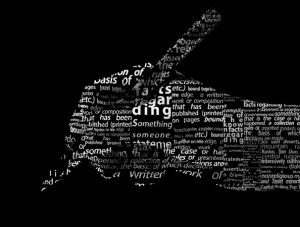
Publishers seeking freelance editorial help need to understand the qualities of a good editor as well as the types of editorial services they might perform. (To read how the editors featured in this article ended up in their profession,
click here.)
Lydick ranks those in her profession in terms of good, excellent, and superb. “A good editor will have a sense of content and how content can be organized so that it’s interesting and sparks something in a reader—hopefully inspiration,” she says. “An excellent editor will have a good sense of audience and how a particular work will be received by a reader—and will tailor the work with this in mind. A superb editor will have a sense of the literary marketplace and how and why a book may do well in the market, knowing that it’s often a tough market to predict.”
Talented freelancers also enjoy what they do, says Renni Browne, founder of an editing service called The Editorial Department. “I’ve been at it for over 50 years, and I’ve never known a good one who found their work boring,” she says. “Every author is different, every manuscript is different, every chapter, paragraph, sentence is different.”
Renni’s son Ross Browne, who directs author services at her company, notes that professional editors tailor their services to fit the project. “If a manuscript isn’t ready for editing yet but we see potential in the story or concept, we usually focus on helping the author improve their writing craft, using examples from their manuscript as the basis for lessons and guidance on plotting, characterization, scene writing, dialogue, and so on,” he says. “We’ve seen authors make amazing strides via this process and go on to become quite successful.”
But, as he points out, publishers sometimes have difficulty understanding and articulating the types of services they need. “Phrases like developmental editing, substantive editing, and even line and copy editing can sometimes mean different things to different people,” he says.
Renni Browne likens the work of a developmental editors to that of an architect, suggesting where to place lines and paragraphs for maximum effect. Ross adds that good developmental editors use diagnostic skills to identify strengths and weaknesses, which they must then convey effectively to the author.
When they work at the line level, Renni likens editors to mimics who recognize an author’s distinct voice and then work to make it shine. Line editors also need a good ear, says Ross. “By ear I mean sensitivity to the way language sounds, the way it flows, to the rhythm between dialogue and narrative,” he says. “They’ll know what sounds real and what sounds phony, what sounds natural and what has a strained literary effect. And they probably won’t
think about any of this.”
Good editors also demonstrate professionalism. Freelance editor Amanda Spedding points to the need for diligence, consistency, a strong work ethic, and time management skills. Owner of All My Best Copyediting, Lynette Smith adds that good freelance editors are honest and keep their word. They should also refrain from working when they’re overly tired, she says, and they should respect client confidentiality even if there’s no nondisclosure agreement.
Know Where to Look
Internet searches, professional associations, and personal recommendations are among the resources for publishers to tap when seeking editorial talent.
An internet search led Crosstown Publishing’s Jim Laughren to The Editorial Department. “I saw they were owned by Renni Browne, author of
Self-Editing for Fiction Writers, a book I had read and been impressed with,” Laughren says. “There are good bios of all their editors on the website, so I was able to select an editor who I felt was most appropriate for my particular book.”
Geoff Brown, acquisitions editor at Cohesion Press, discovered Spedding through a professional association of writers. After he confirmed her qualifications and experience and checked references from previous clients, he hired her to handle all editorial functions at his small press.
Professional associations may offer request-for-quote (RFQ) services that broadcast publisher
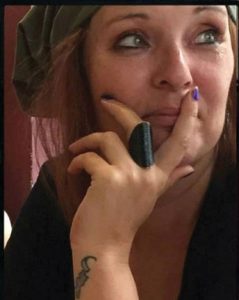
Amanda Spedding, freelance editor
needs to their members, notes Ross Browne. But depending on how the service is set up, he warns that the response can be overwhelming. “Editorial Freelancers Association (
EFA) has several thousand members, and you can expect several dozen members to respond to your RFQ,” he says. “Thankfully, EFA also allows you to post a supplemental notice stating you have received sufficient replies.”
Thumbtack limits RFQ broadcasts to service providers within a specific geographic radius, says Ross, and only the first five responses are provided. Other professional associations of freelance editors include the American Copyeditors Society and the National Association of Independent Writers and Editors.
At Top Reads Publishing, a hybrid/author services company, Teri Rider finds freelance editors primarily via referrals. “Always ask for sample work and for a sample of how they would edit the specific work you want to hire them for,” she suggests.
For sample edits, Spedding prefers material from the middle of a manuscript. “That’s where you’ll get a real understanding of the writing,” she explains. “The beginning and end chapters are the ones the writer works on most.”
Getting Started
Editorial relationships begin with an exchange of information between publisher and editor. Specifying the scope of services, scheduling, and compensation, a formal or informal agreement binds the relationship.
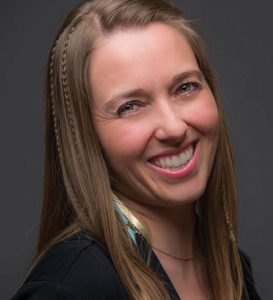
Kelly Lydick, freelance editor
“When I’m exploring the possibility of a new project, I first get a sense of how well I communicate with the author and how well the author communicates with me,” Lydick says. “I also take a look at the content and see if it’s within my scope of understanding or, even better, expertise—a subject I know a lot about—and also whether I like the style of the writing.”
For Smith, an editorial relationship begins with an email thread in which she asks about scheduling and explains the scope of her services for copyediting—spelling, grammar, punctuation, clarity, usage, and flow—as well as for proofreading the PDF proof. Based on word count and representative pages, she offers a quote and a proposal. A start-up deposit finalizes the arrangement.
At The Editorial Department, the business relationship begins as something of a matchmaking process in which Ross Browne works with the client to choose the best fit for the project from among the company’s 16 editors.
“We ask a lot of questions of our new clients at the intake stage about the manuscript and its author, including publication goals and intended readership, the author’s experience with writing and publishing, and where they feel they need the most help,” he explains. “I read some of the manuscript to make sure it’s ready for our process and to get a feel for the writing so I can make a good match to an editor.”
After recommending an editor, Browne offers details of the services, costs, and time frame proposed for the project. He provides formal agreements upon request. Lydick affirms arrangements with work orders, project agreements and, if necessary, confidentiality agreements.
Different editors charge at different rates.
Click here to see some examples.
Overcoming Challenges
Disagreements about the greater vision of a project can cause an editorial relationship to go awry, notes Lydick. Problems can also arise when publishers fail to approach editing in the proper sequence.
“It’s vital to make sure your author’s manuscript is truly ready for the service you want to engage,” Ross Browne says. “There’s nothing more frustrating for an editor than being tasked with a line edit on a manuscript whose story often doesn’t make sense, or to do a final proofread on a manuscript that was not properly copyedited before going into layout.”
Smith cites an instance when, partway into proofreading, she discovered the manuscript had undergone no previous copyediting. “The author would have saved hundreds of dollars by hiring a copy editor prior to having the book laid out,” she says.
Scheduling can be another source of conflict. As Smith points out, publishers sometimes fall behind but fail to notify the editor, who has slotted the work into her schedule. If a project proves more complex than was discernible from the sample edit, Smith suggests editors notify the client immediately so that a new agreement can be forged.
The Perfect Fit
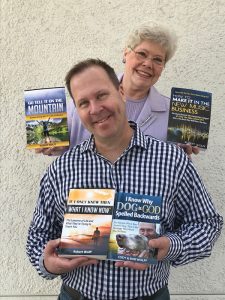
Lynette Smith and author Robert Wolff have worked together remotely since 2011. They met in person for the first time last October.
By understanding the nuances of editing, searching for the right talent, and fostering good relationships, publishers stand to reap the benefits of a perfect editorial fit.
“Hire professionals who will show the writing in the best possible light, without overshadowing the author’s unique writing style,” Smith advises. “The types of edits you see should help the writing flow seamlessly, so readers won’t be distracted from an otherwise quality reading experience.”
The outcome is worth the investment, gg notes. “This isn't a spin-the-wheel-and-hope-for-the-best option, but rather finding someone who is going to help you provide the best possible outcomes for the books you want to put out into the world,” she says. “Search until you find that perfect fit, because there is an editor out there for you and your press.”
Co-founder of 49 Writers and founder of the author co-op Running Fox Books, Deb Vanasse is the author of 17 books. Among her most recent are the novel Cold Spell
and a biography, Wealth Woman: Kate Carmack and the Klondike Race for Gold.
She also works as a freelance editor.
The Path to Freelance Editing
Editors come to their profession via many avenues. In their own words, they share their stories.
Kelly Lydick: My entire life, I have had a love for books. Before becoming an editor, I worked in retail bookselling, and I have also held positions in education as an English teacher and in various editing capacities for literary magazines, journals, and monthly magazines. I have been a freelance editor for a handful of years now, but prior to that I worked for many years at Avalon Travel (now Hachette), editing exclusively for the Rick Steves series.
Renni Browne: After working three months for a magazine in Manhattan right after college, my boss fired me. “You’re a born editor,” he said. “Go get an editorial job anywhere you can and quit as soon as you’ve learned everything you can.” I took his advice, and when I was interviewed by Scribner’s editor Harry Brague—who had replaced the legendary Maxwell Perkins—he looked at my resume and said, “Did you really have 19 jobs in five years?” I told him why, and I became a
book editor.
Ross Browne: I took my first step to becoming an editor in 1992, shortly after deciding that being a journalist was not for me and that the mail room in Prentice Hall was not the highest and best use of my love of reading. My mother had spent her entire professional life as an editor, and her enjoyment of her work—especially once she went freelance—was a big factor in my decision to give it a try. I began in an internship capacity at my mother's company, reading manuscripts for the company and, later, chiming in with my own comments and suggestions behind some of her more experienced editors. It wasn’t too long before I was working with my own clients and enjoying the daylights out of it. I'm 25 years into it now and still feel incredibly lucky to be in this line of work.
Lynette Smith: When operating a word processing business from 1980 to 1996, I learned early on that my repeat clients were grateful that I edited their writing while word processing. For the next five years, as sole editor for a trade association’s 16-page journal and six trade manuals, I honed my editing skills further and loved the work. I eventually established All My Best, now in its 14th year.
Amanda Spedding: I’m a journalist by trade but took time off after my children were born. I decided I wanted to work from home, and I’d always had a love of the written word, so apart from my own fiction writing, editing was the perfect fit. I went back to school and got a Diploma of Publishing (Book Editing, Proofreading & Publishing) and Cert IV in Editing.
The Cost of Freelance Editorial Services
In choosing an editor, cost is only one of many factors to consider. Calculated by the word, by the hour, or by the project, charges vary with the individual and the level of services provided.
To illustrate the range of fees, we asked publishers to share what they pay and editors to share what they charge.
Geoff Brown, publisher: A per-thousand-word rate, which I prefer, as you know the set cost of the work before contracting.
Jim Laughren, publisher: For my most recent book, the cost was $0.018 per word. I paid half up front and half after delivery of the completed work.
Teri Rider, publisher: Fees vary significantly. I have paid by the word, by the page, and by the project. I prefer paying by the word because it is easy to define. I will typically ask for a quote after sending the manuscript, and terms are usually a deposit and balance when complete.
Kelly Lydick, editor: My rates are determined by the complexity of the project and how many hours and in what capacity I would need to invest in the project. Some projects are very economical and others very expensive.
Amanda Spedding, editor: I do everything from structural edits to line edits (copy editing), proofreading, and manuscript assessments—the whole gamut. On average, for a copy edit of an 80,000-word novel, I'll usually charge around $1,200 AUD; however, it all depends on the amount of work that's required.
Ross Browne, The Editorial Department: The most often recommended service for a new client is a manuscript annotation, which addresses plot, character, and writing style with comments throughout and an overview at the beginning. Fees depend primarily on length, and the most typical charge is $0.014 per word. Authors who come to us from their publishers are usually much further along and often just need final copy editing (to ready a final manuscript for print layout and e-book formatting) and/or proofreading (to make sure the post-layout version is free from errors and typos). These services typically range from $0.008 to $0.016 per word.
Lynette Smith, editor: My clients are book authors, small publishers, and publishing consultants, for whom I either “scrub” (basic-format) and copy edit their MS Word manuscripts or proofread the layout and content of the book designer’s PDF layout proof. My hourly rate, on which all quotes and estimates are based, has been $55 for several years. Average word rates for manuscripts of at least 35,000 words are about $0.015 for light copy editing, $0.02 for medium, and $0.025 for heavy.